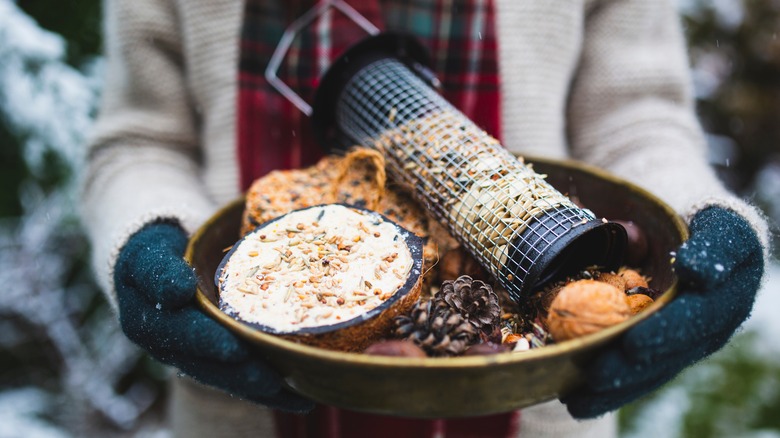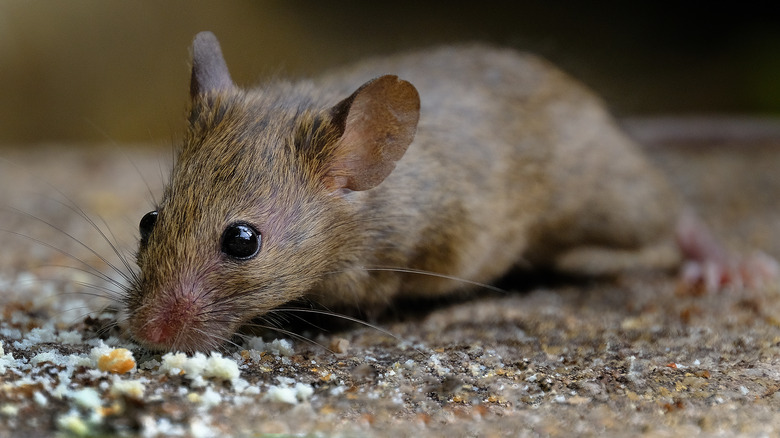Storing Bird Seed In Your Backyard Shed Isn't The Best Idea. Here's Why
As an avian lover or a gardener looking to attract birds to one's yard or garden, keeping extra bird seed on hand ensures that you always have a steady supply of food available for your feathered friends. Of course, this means having to store more bird seed so it's readily available when you need to refill bird feeders quickly. When finding a good place to store bird seed, one's backyard shed may come to mind. After all, the shed is a versatile structure that can serve as a storage space for tools, gardening equipment, seasonal decorations, and more. However, while it offers convenient storage solutions for a variety of items, bird seed is one item you really shouldn't be storing in an outdoor shed.
Although sheds protect from the elements and help keep stored items organized and out of sight, they are not always the best environment for storing bird seed. Sheds are susceptible to pest infestations and rodent incursions. They're also not insulated or climate-controlled and may be prone to humidity and moisture buildup. Overall, sheds typically lack proper shelving, sealing, and sanitation measures necessary for safe food storage. Without proper storage conditions, food items are more susceptible to contamination, spoilage, and deterioration in quality.
The risks of using your backyard shed for food storage
Using a backyard shed for storing any type of food, whether for birds, pets, or humans, poses several risks that can compromise food safety and quality. Food stored in sheds can attract vermin, insects, and other pests, increasing the risk of contamination, oxidation, foodborne illness, and damage to the shed itself. Since backyard sheds usually aren't insulated or climate-controlled, stored items are exposed to temperature fluctuations throughout the year. Changing temperatures can affect the quality and freshness of bird seed (or any food product), potentially leading to spoilage or mold growth. Sheds may also be subject to moisture, especially in humid climates, or during periods of inclement weather or heavy rainfall. Excess moisture can cause bird seed to become damp or soggy, rendering it unpalatable to birds and increasing the risk of spoilage, as well as mold or bacterial growth.
Considering these factors, you'll need to explore alternative storage options for bird seed to ensure its quality and appeal to backyard birds. Store it in a cool, dry, and pest-proof location inside your home or garage to ensure its safety and preserve its quality. Use airtight containers to protect the seed from moisture and pests, and rotate stock regularly to maintain freshness. Taking these precautions allows you to provide nutritious and appealing bird seed for your feathered friends while minimizing the risk of contamination and spoilage.

